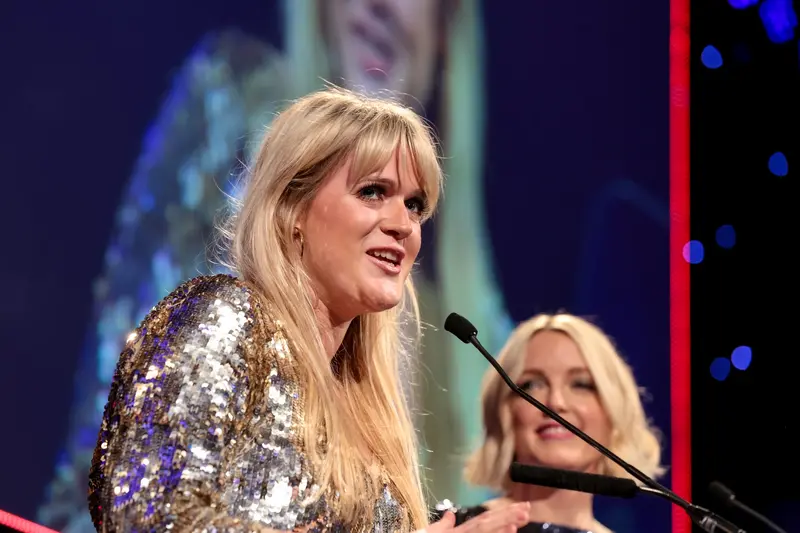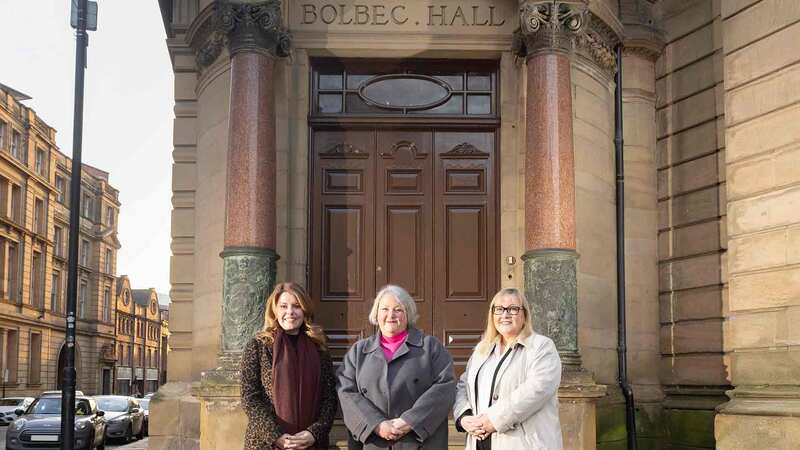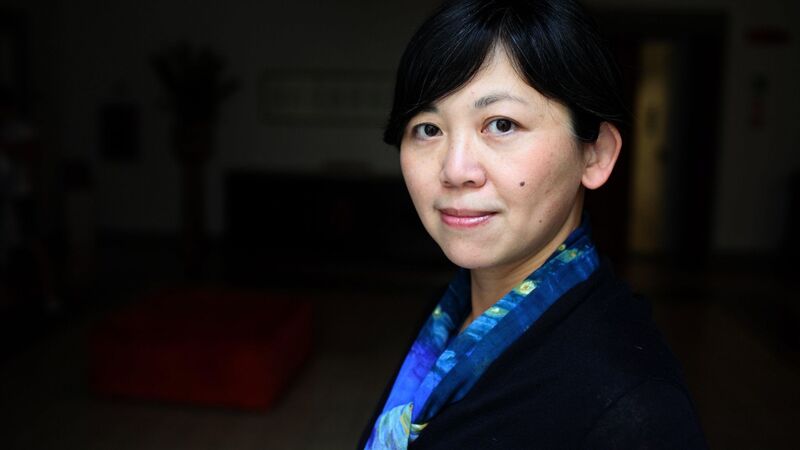You are viewing your 1 free article this month. Login to read more articles.
Booker double welcomed by booksellers
The Booker Prize has been jointly won by Margaret Atwood’s The Testaments (Chatto & Windus) and Bernardine Evaristo’s Girl, Woman, Other (Hamish Hamilton), after the judges rebelled and broke the rules. The £50,000 prize money will be split between the two authors following a shock announcement at London’s Guildhall on Monday evening (14th October). Booksellers welcomed the joint win, calling it “an absolute gift for bookselling”.
Chair of judges Peter Florence said the panel had been unable to "compromise", despite being told twice it was against the prize’s rules by both the Booker Prize Foundation’s literary director Gaby Wood and head of trustees Helena Kennedy. Wood said the jury had "essentially staged a sit-in" and actively flouted the rules. She said their decision had to be accepted as a "rebellious" gesture, but also a "generous" one, denying it set a precedent. “The rules have been broken, not changed,” she said.
Asked by journalists if Evaristo, the first black woman to be awarded the prize, might be overshadowed by Atwood’s Gilead blockbuster, Florence said he hoped not. “We would like to give equal prominence and celebration to these two people,” he said.
Girl, Woman, Other follows the lives and struggles of 12 different characters, mostly black British women. Florence said there was “something utterly magical” about the book, saying of the characters: “They give a wonderful spectrum of black British women today. There are stories there of people who aren’t well represented in contemporary literature and I think in that sense this book is ground-breaking and I hope encouraging and inspiring to the rest of publishing. It certainly seems to have delighted and warmed all the people who read it.”
Atwood becomes only the fourth author to win the award twice, following her win for The Blind Assassin in 2000. The Testaments, one of the year’s biggest books, picks up 15 years after the events of The Handmaid’s Tale, following the stories of three different women.
L-R Anna Burns, Margaret Atwood, Bernardine Evaristo and Peter Florence ©The Booker Prize
Praising its beauty and depth, Florence said: “Now it looks more politically urgent than ever before and there is a need now to look at what complicity and what resilience and what resistance might look like.”
Evaristo said her win was an “incredible thing to happen” and it was also incredible to share the prize with Margaret Atwood who is “such a legend.” She said winning the Booker Prize had felt “so unattainable for decades” and added: “It’s a bittersweet experience; it’s great to be the first black woman to win the prize, but I shouldn’t be the first. This prize has moved with the times, and our culture has changed somewhat in the last few years; I don’t think it would have happened 10 years ago, or five years ago.” She said she hoped the win would also inspire people who have been “ploughing away for decades”, since it came at the age of 60, following a 40-year career in the arts. The prize money would go on her mortgage, she said.
Hamish Hamilton publisher Simon Prosser told The Bookseller: “Viva Bernardine! This prize means so much — for Bernardine, for her work, for us — and for black writing in Britain, especially writing by black women, so long overlooked. It really is a joy that she won last night. And she so deserves this.”
Meanwhile Margaret Atwood said she was “extremely pleased to share the prize”, saying “It would be genuinely embarrassing to win the whole thing and prevent another writer – and another career – going through the door.” She added: “I’ve been on many a [book prize] jury, and I’ve been on a jury that split the prize, so I understand it. In a perfect world – the world of Alice in Wonderland – all shall win and all shall have prizes, and it would have been split 13 ways [the longlist number]. But unfortunately that’s not how it goes.” She pledged to give her prize money to charity Indspire, which supports First Nations, Inuit and Métis students with bursaries and scholarships.
PRH UK c.e.o. Tom Weldon said: “We are absolutely thrilled that two of our authors have shared in this unexpected yet historic achievement. Both The Testaments and Girl, Woman, Other are remarkable, magnificent books. My heartfelt congratulations to both Margaret and Bernardine, as well as the brilliant teams behind both novels – and all those across the company who touched these books in some way. Publishing is like a relay race and a book will pass through hundreds of hands from conception to publication. Some of those contributions are unseen and unsung so I hope that today everyone at Penguin Random House can feel a sense of pride in this fantastic accomplishment.”
Bea Carvalho, Waterstones fiction buyer said: "To have two winners for 2019’s Booker Prize is the most wonderful surprise, and an absolute gift for bookselling. The standard of the shortlist, and the fact that we have two astonishing winners, is reflective of an incredible year of publishing. The Testaments is our fastest selling book of the year, and its release was one of its greatest cultural moments: it is the most talked about book of the year and we are thrilled to continue the conversation with this excellent news.
“The Booker Prize has the ability to create bestsellers too: Anna Burns spoke movingly of her career changing win last night and the huge impact of the win was very much reflected in Milkman’s sales. We expect Evaristo’s win to create a similarly huge spike in sales for Girl, Woman, Other: we’re delighted to have the opportunity to shout about this beautiful book and introduce thousands of new readers to Evaristo’s work. They’re in for a treat. This year’s prize will surely be talked about for years to come, as will these two brilliant books.”
At Blackwell’s, Zool Verjee, head of marketing and publicity, said: “We're as surprised as everyone else that the judges split the prize between two books, and we're delighted for both Bernardine Evaristo and Margaret Atwood. Book prizes are always going to generate a multitude of opinions, but nobody can deny that we are all fascinated by them - they stimulate even more interest and discussion about books in general and they raise certain books higher up people's 'to be read' pile - all of this is great for readers and great for the book trade. None of us in bookselling are going to forget the 'wow' moment of two winners for a little while!”
Edward Scotland, bookseller at Mr B's Emporium in Bath, also welcomed the double win, with staff at its shop especially pleased for the success of Bernadine Evaristo's Girl, Woman, Other as a book it has been particularly championing. Of the fact Evaristo's win makes her the first black woman to claim the prize since it began in 1969, he said it was "embarrassing more than anything else" for the prize and that he hoped it was a sign of things to come. Whether two winners was good for business, he said: "It will be interesting to see. The Testaments has been selling anyway; I don't think [its win] is going to make any difference to the fact that is a huge seller for us. Evaristo's Girl, Woman, Other will see much more of a difference in sales."
Emma Corfield Walters of Bookish in Crickhowell in Wales, said: "I'm really pleased for both authors. And if the judges really couldn't split the two votes then, yes, I'm happy. It's amazing for Bernardine Evaristo [as the first black woman to have won the prize since it began] and for Margaret Atwood, who has won for The Blind Assassin, as the oldest woman to win."
L-R Gaby Wood, Margaret Atwood, Bernardine Evaristo and Peter Florence (©The Booker Prize)
The Booker has been jointly awarded twice before, to Nadine Gordimer and Stanley Middleton in 1974 and to Michael Ondaatje and Barry Unsworth in 1992. The rules were changed following the 1992 decision because the organisers thought it detracted from the books to divide the prize, Wood said.
Hazel Broadfoot of Village Books in Dulwich said: "It's interesting because I'm old enough to remember the last time the prize was shared. It did dilute sales for those two books and, as far as I can remember, neither did particularly well. However I don't think there's a risk of that this year. I'm very happy to see Margaret Atwood win, it's a great choice for booksellers at the moment, it's doing incredibly well anyway – it's been flying off our shelves since it came out – and looks fantastic. I think winning will only increase sales. Girl, Woman, Other is the choice I was tipping yesterday. I'm very pleased to see that winning. It's also nice because the interaction between the two winners has been so good."
Further explaining the jury’s decision, Florence said they had all agreed on the course of action, jokingly likening their action to Extinction Rebellion and saying it was a “moment of joy for all of us”. He said: “It was the collective will of the jury to say ‘we can’t abide by these rules’.” He went on: “These are two books that we started not wanting to give up and the more we talked about them the more we treasured both of them and wanted them both as winners.”
Both novels were picked from a six-strong shortlist which included Elif Shafak's 10 Minutes 38 Seconds (Viking) and Lucy Ellmann’s 1,000 page monologue Ducks, Newburyport (Galley Beggar Press). Chigozie Obiama was nominated for the second time with An Orchestra of Minorities (Little, Brown) and former winner Salman Rushdie’s Quichotte (Jonathan Cape) also made the final picks.
Also judging the award were Afua Hirsch, Liz Calder, Xiaolu Guo and Joanna McGregor.















